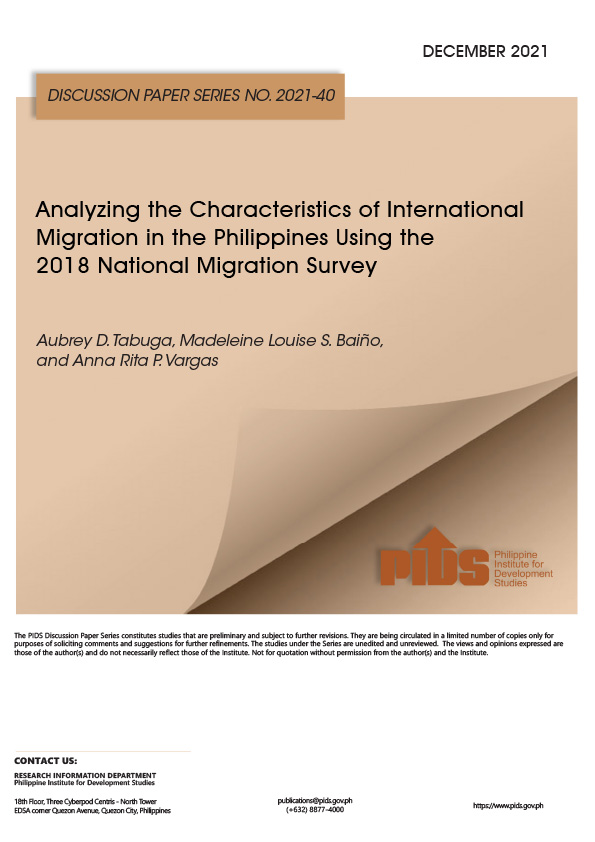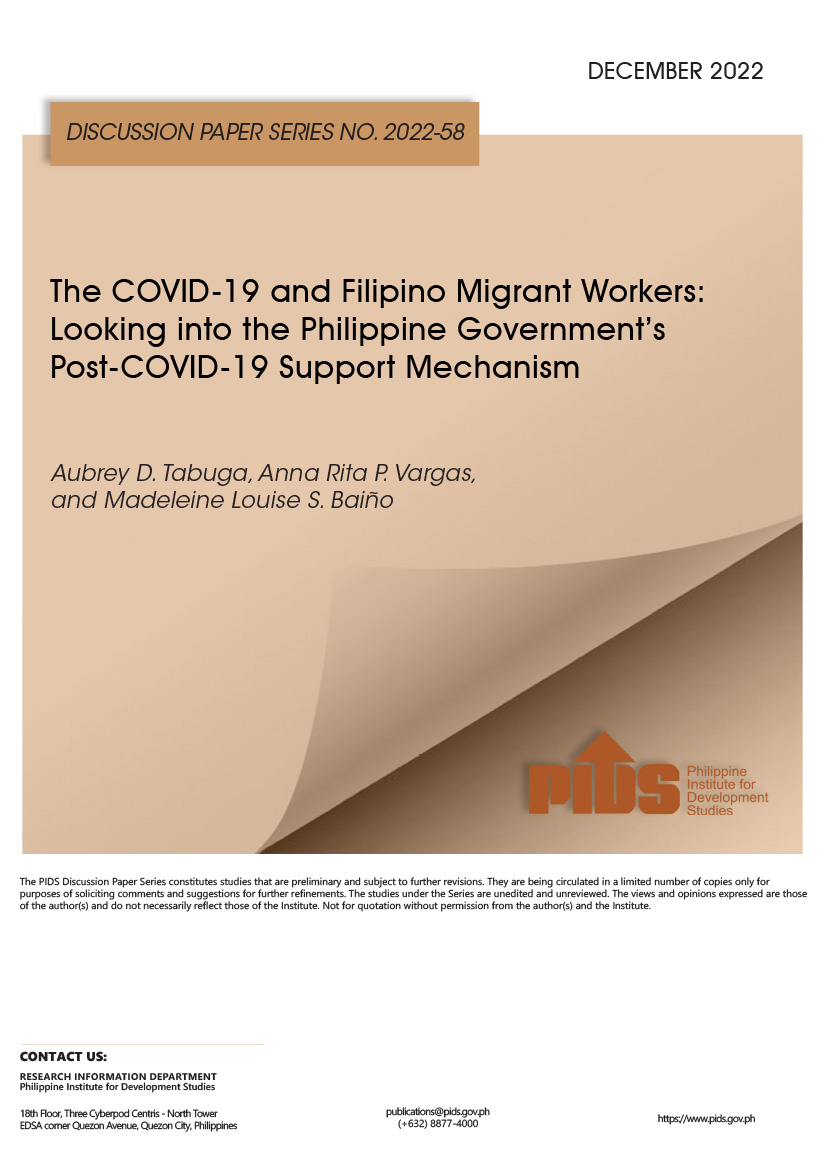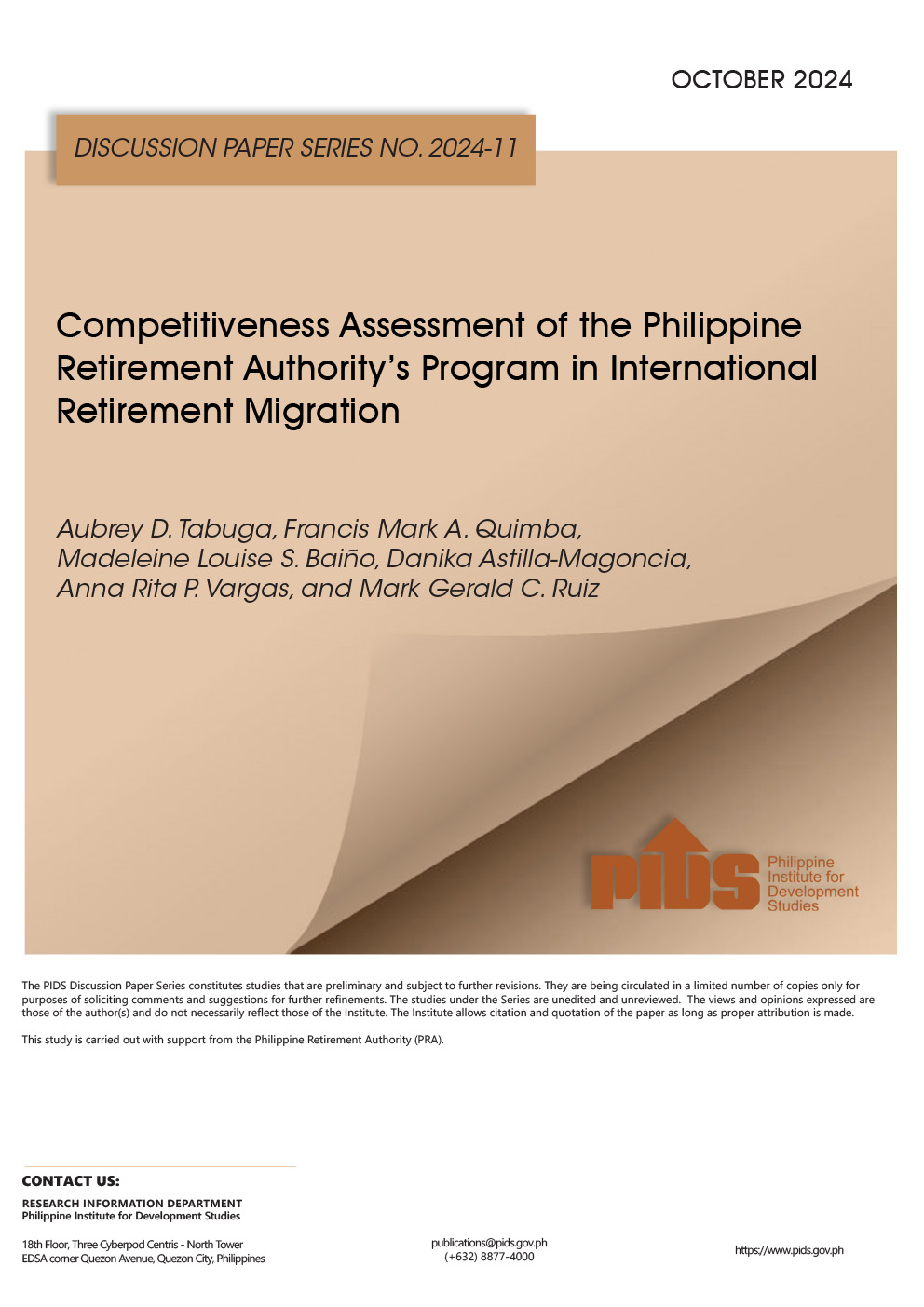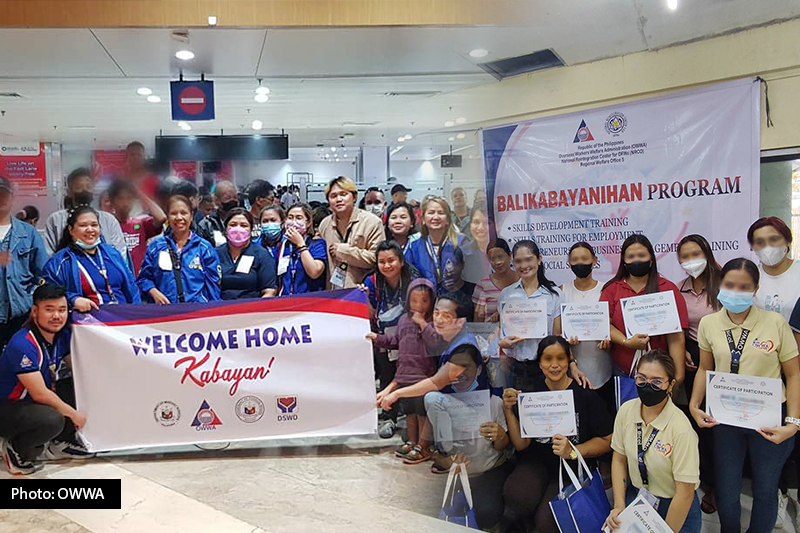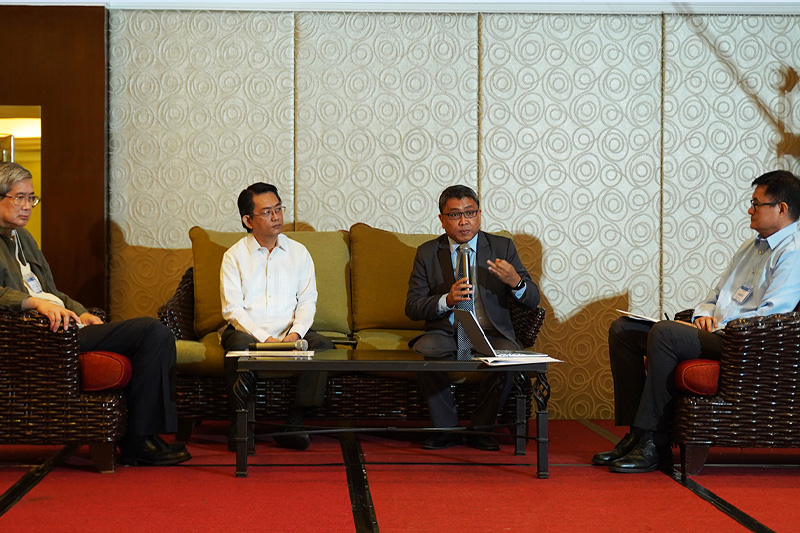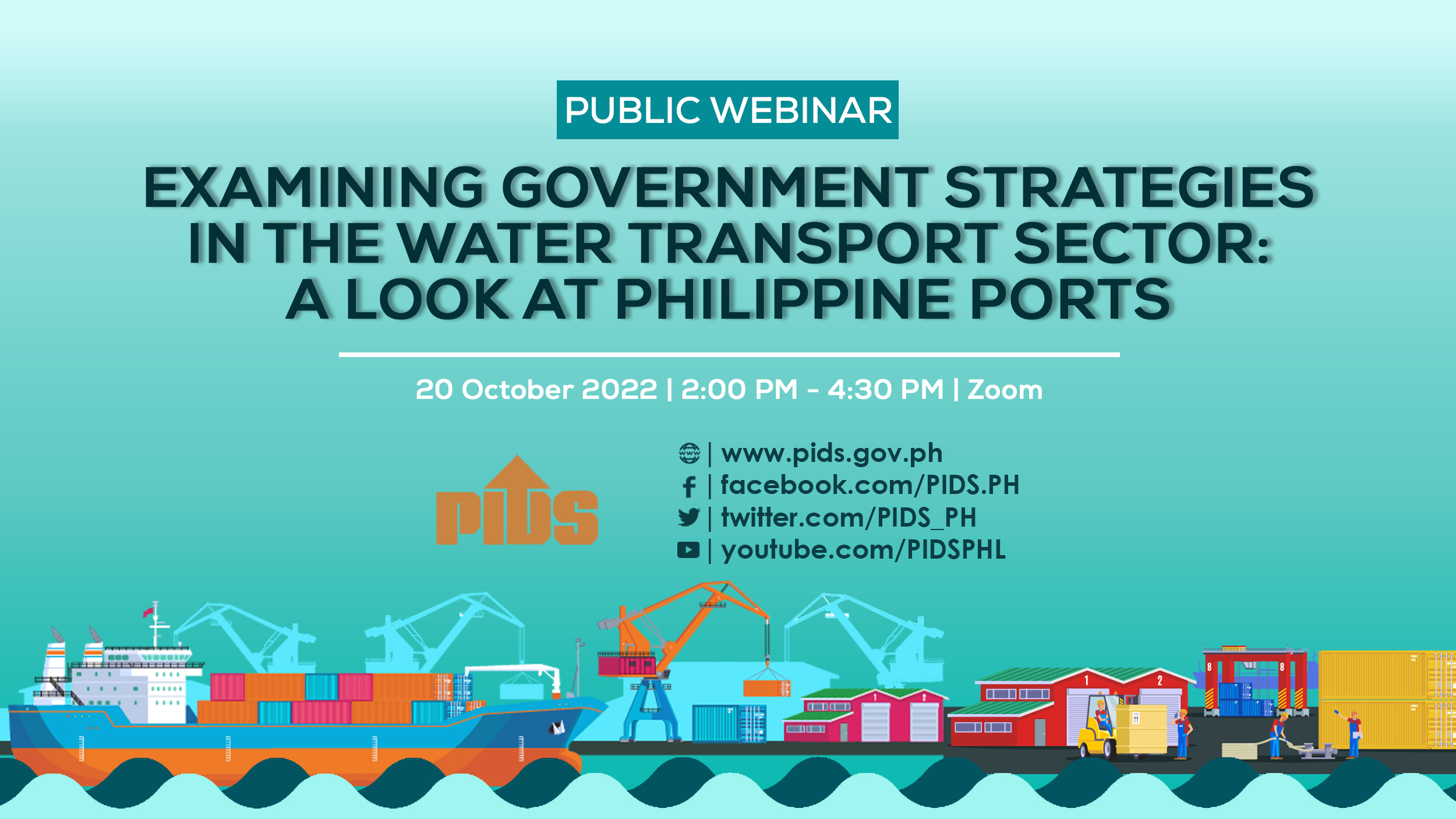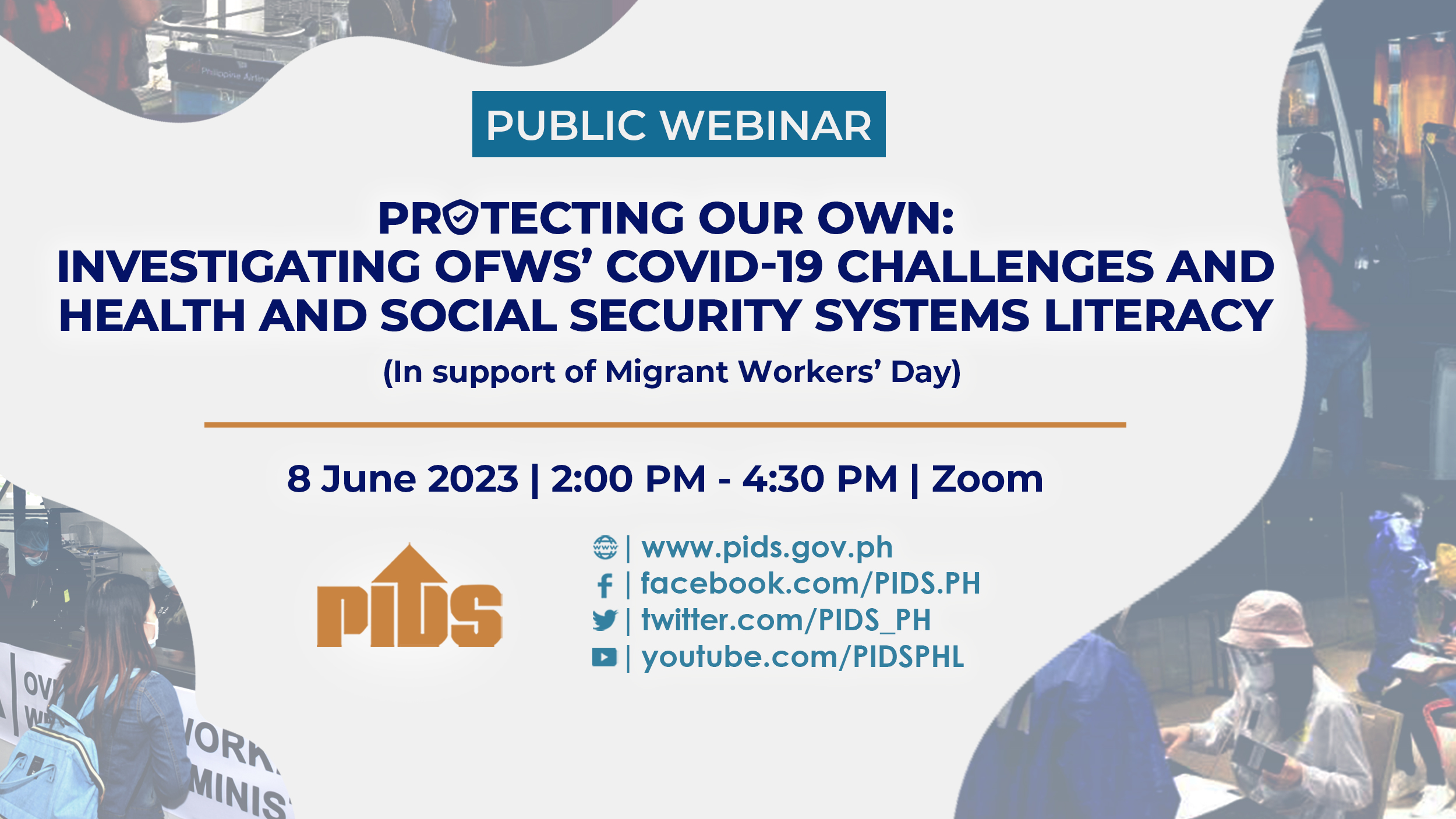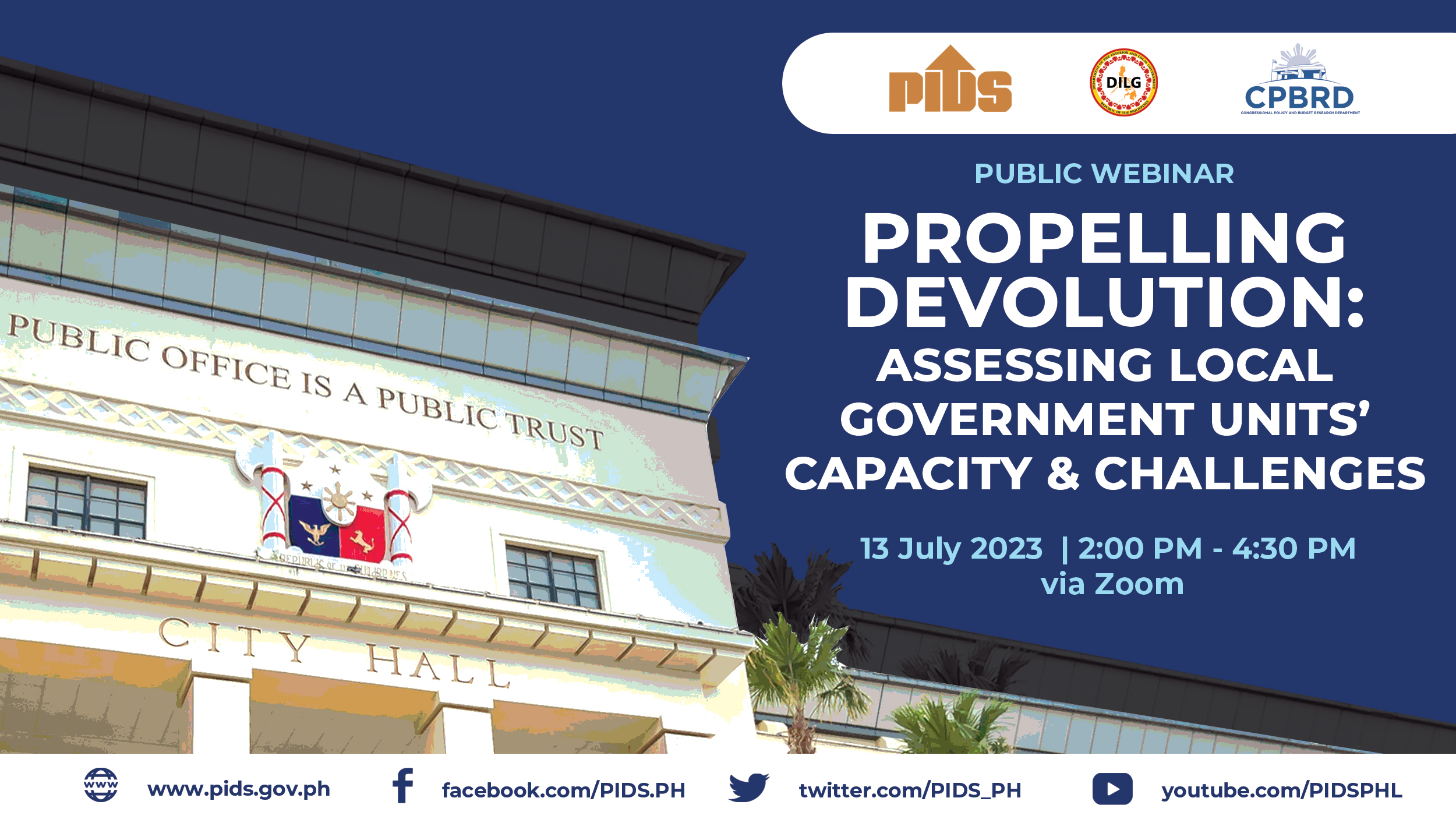MANILA, Philippines — The government should consider a contingency fund and reviewing the insurance scheme and social protection coverage of overseas Filipino workers (OFWs) to address the influx of returning workers during crises, the Philippine Institute for Development Studies (PIDS) said.
In a discussion paper titled “The COVID-19 and Filipino Migrant Workers: Looking into the Philippine Government’s Post COVID-19 Support Mechanism,” PIDS researchers cited the need to consider the creation or expansion of a contingency fund for the emergency repatriation of OFWs to address future crises of similar nature and magnitude as COVID-19.
“It is important to consider putting up a contingency fund in the General Appropriations Act especially for crises of this scale,” the PIDS said.
The PIDS said the COVID-19 pandemic tested the Philippine government’s capacity, not only in terms of addressing challenges locally, but also in handling the return of OFWs in numbers never before seen by the country.
At the height of the pandemic in 2020, it said nearly 600,000 OFWs returned to the country, while close to 160,000 OFWs came back in July of that year alone.
While the Overseas Workers Welfare Administration (OWWA) has an emergency repatriation fund amounting to P100 million, the PIDS said it eventually needed additional resources from the national government.
The PIDS said the COVID-19 pandemic intervention amounted to P23 billion as the government spent for almost all the expenses on repatriation and medical support.
“The government may also consider reviewing the Emergency Repatriation Fund of the OWWA on whether it must be augmented or whether there is a need to set up another type of fund for addressing various needs (including those for reintegration and post-repatriation),” the PIDS said.
It also said improving access to social protection for migrant workers and their families is needed and long overdue.
“It is useful for the government to explore a government-managed insurance scheme for OFWs that can cushion them in case of mandatory or unprepared repatriation or return apart from the financial grant that the government usually provides,” the PIDS said.
Moreover, a review of policies relating to insurance will need to be undertaken.
“Force majeure is often not included in the insurance coverage. However, with unprepared repatriation, it is crucial that OFWs gain other ways to remedy their situation,” the PIDS said.
In addressing future emergencies concerning the influx of returning OFWs, the PIDS said the policy and operational structures set up during the pandemic can serve as a template.

